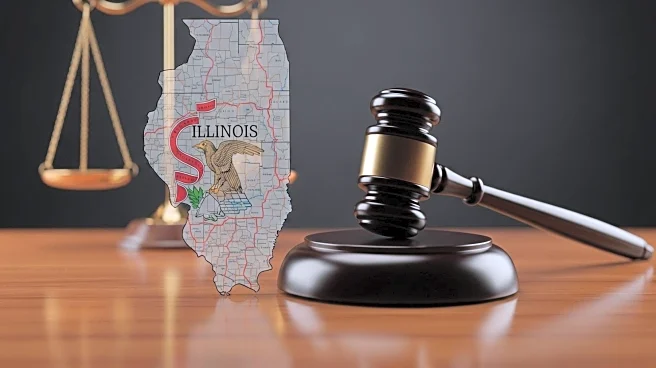What is the story about?
What's Happening?
A federal appeals court has ruled that National Guard troops can remain in Illinois under federal control, but has upheld a district court's decision to block their deployment in Chicago. The U.S. Court of Appeals for the Seventh Circuit issued an unsigned order allowing 200 Texas National Guard troops to stay in the Chicago area without violating a judicial order, provided they are not deployed. This decision follows a ruling by Judge April Perry of the Federal District Court for the District of Northern Illinois, which placed a two-week block on both the deployment and federalization of National Guard troops. The appeals court's order did not address whether President Trump exceeded his legal authority in attempting to deploy troops to protect federal property and agents involved in deportation efforts.
Why It's Important?
The court's decision is significant as it highlights the ongoing legal and political tensions surrounding federal intervention in state affairs. The ruling affects the balance of power between federal and state governments, particularly in matters of security and law enforcement. The decision to block deployment in Chicago reflects concerns from Illinois officials, including Governor JB Pritzker, about federal overreach and the potential impact on local governance. This case could set a precedent for future disputes over federal authority and state rights, influencing how similar situations are handled across the U.S.
What's Next?
The temporary nature of the appeals court's ruling suggests that further legal proceedings are likely. The courts may issue more detailed opinions once they have reviewed arguments from both sides. Stakeholders, including state officials and federal agencies, will be closely monitoring the situation. The outcome could influence future federal actions in other states, especially those with Democratic leadership opposing President Trump's policies. The legal battle may also prompt discussions on the limits of presidential power in deploying military forces domestically.
Beyond the Headlines
This case raises broader questions about the role of the National Guard and the legal framework governing its deployment. It touches on constitutional issues related to federalism and the separation of powers. The situation also reflects the political climate under President Trump's administration, where federal actions have often sparked controversy and legal challenges. The implications of this ruling could extend beyond Illinois, affecting national discourse on federal authority and state autonomy.















